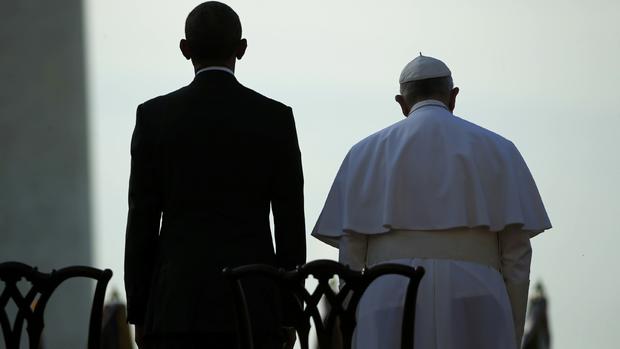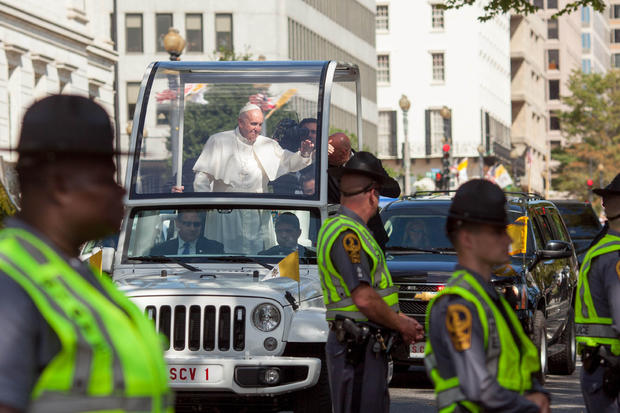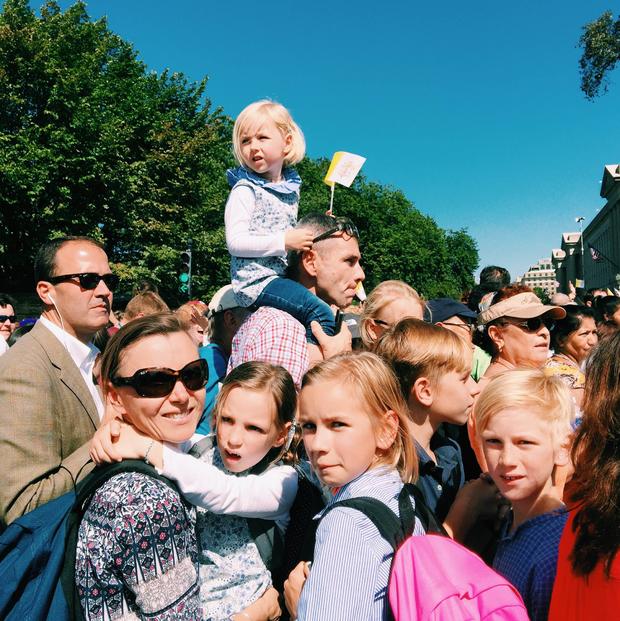Pope Francis in Washington
WASHINGTON -- Pope Francis made his first remarks on U.S. soil Wednesday morning on the South Lawn the White House, making the case that Christians have an obligation to be responsible stewards of Earth. He was greeted by President Obama, government officials, Catholic dignitaries and at least 11,000 others.
"Climate change is a problem which can no longer be left to a future generation," said the pope, speaking in English. "When it comes to the care of our common home, we are living at a critical moment of history. We still have time to make the changes needed to bring about a sustainable and integral development, for we know that things can change."
He added that the world's citizens are also obligated to improve the world that will be left to "the millions of people living under a system which has overlooked them."
The pope's remarks on the White House South Lawn marked his first official stop on his three-day tour of the United States.
After the South Lawn ceremony, and a meeting with the president, here is what's on the pope's schedule for the rest of the day:
11:00am: He rides the Popemobile in a parade around the Washington monument area to see the throngs of people who have gathered to see him.
12:00pm: The pope will then meet and pray with North American Bishops at St. Matthew's Cathedral for noon prayers and services with U.S. bishops.
4:15pm: Pope Francis heads to the Basilica of the National Shrine of the Immaculate Conception in Washington, where he will deliver a full mass in Spanish. A crowd of 30,000 is expected, and law enforcement officials have beefed up the largest security operation in U.S. history. Vice President Joe Biden is also expected to attend.
Also at the National Shrine, he will perform the first canonization on U.S. soil - of Father Junipero Serra. Serra was the first Hispanic missionary in the U.S., credited with introducing Christianity to much of California. His elevation to sainthood is controversial because he has been blamed by many Native Americans for wiping out native populations and enslaving converts.
The Vatican, however, counters that Serra often intervened to spare them from more brutal treatment by colonial officials. Vatican officials defended Serra, saying that he worked in defense of Native Americans, often intervening to spare them from the more brutal colonial officials.
6:50pm: He will attend a blessing with seminarians outside the John Paul II Seminary.


